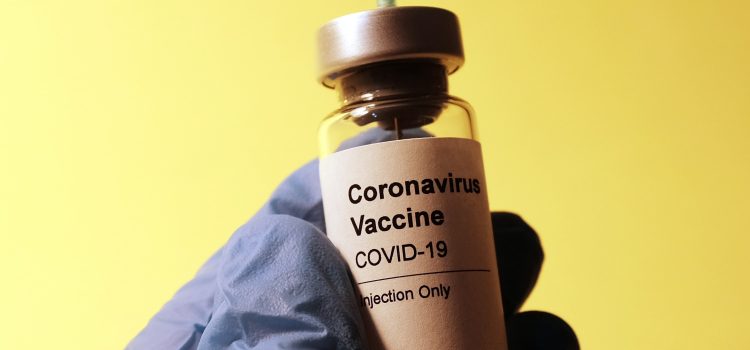
As the world battles the COVID-19 pandemic, vaccination has become a crucial tool in curbing its spread. However, there have been concerns about the possible side effects of getting vaccinated, including tinnitus – a ringing or buzzing sound in the ears. For COVID-19 survivors who already battle with this condition, could getting vaccinated trigger it? In this blog post, we will explore what tinnitus is and its correlation with vaccines. We will also discuss how to treat this condition if you experience it after getting vaccinated. So sit tight and let’s dive into this interesting topic!
What is Tinnitus?
Tinnitus is a condition that affects millions of people around the world. It’s characterized by hearing sounds such as ringing, buzzing, hissing, or whistling in the ears when there are no external sounds present. The noise can be intermittent or constant and can range from mild to severe.
There are two types of tinnitus – subjective and objective. Subjective tinnitus is the most common type where only the person experiencing it hears the sound. Objective tinnitus, on the other hand, can be heard by others through a stethoscope.
Tinnitus has various causes including exposure to loud noises, ear infections or injuries, age-related hearing loss and certain medications such as antibiotics and chemotherapy drugs. Stress and anxiety may also worsen symptoms.
Living with tinnitus can be challenging as it affects concentration levels and quality of life. While there is currently no cure for this condition, treatment options such as sound therapy and cognitive behavioral therapy (CBT) have been known to alleviate symptoms for some patients.
What is the Correlation between Tinnitus and Vaccines?
Tinnitus is a condition that causes ringing or buzzing in the ears. It can be caused by several factors such as exposure to loud noises, ear infections, and age-related hearing loss. However, there have been concerns about whether getting vaccinated against COVID-19 could trigger tinnitus in some people.
Many COVID-19 survivors have reported experiencing tinnitus as one of their long-term symptoms. While it’s unclear why this happens, some experts believe that inflammation caused by the virus could damage the auditory system and lead to tinnitus.
As for vaccines, there isn’t enough evidence to suggest a direct correlation between vaccination and tinnitus. However, like any medication or treatment, vaccines can cause side effects in some people. These side effects may include headache, fever, fatigue and muscle pain – all of which are also common symptoms of tinnitus.
It’s worth noting that the risk of developing severe complications from COVID-19 far outweighs any potential risks associated with getting vaccinated. Therefore, health officials still encourage everyone who is eligible to get vaccinated as soon as possible.
In conclusion (Just Kidding!), more research is needed to determine if there is a causal relationship between vaccines and tinnitus. Nevertheless, it’s important for individuals who experience any adverse reactions after receiving a vaccine to consult with their healthcare provider promptly.
How can you Treat Tinnitus?
When it comes to treating tinnitus, there are several options available. However, it’s important to keep in mind that what works for one person may not work for another. Here are some common treatments:
1. Medications: Certain medications can help alleviate symptoms of tinnitus, such as antidepressants and antianxiety drugs.
2. Sound therapy: This involves using external noise to mask the internal sound of tinnitus. White noise machines or hearing aids with built-in white noise generators can be helpful.
3. Cognitive-behavioral therapy (CBT): This type of therapy focuses on changing negative thought patterns related to tinnitus and teaching coping mechanisms.
4. Stress management: Tinnitus often worsens when stress levels are high, so finding ways to manage stress, such as through exercise or meditation, can be beneficial.
5. Alternative therapies: Some people find relief from acupuncture or hypnosis, but these treatments have not been extensively studied for their effectiveness in treating tinnitus.
It’s important to consult a healthcare professional before trying any treatment option and keeping an open mind about what may work best for you.
Conclusion
Tinnitus is a prevalent condition that affects millions of people worldwide, with COVID-19 survivors being at a higher risk. Although it remains uncertain whether vaccination can trigger or worsen tinnitus symptoms in these individuals, healthcare professionals should be aware of this potential side effect and monitor their patients accordingly.
For those living with tinnitus or experiencing it as a result of the vaccine, various treatments are available to alleviate symptoms. Lifestyle changes such as reducing stress levels and avoiding loud noises can also help manage the condition.
As we continue to navigate through the pandemic and vaccination efforts ramp up globally, understanding the correlation between vaccines and tinnitus becomes increasingly vital. While further research is necessary to determine any concrete links definitively, maintaining open communication with your healthcare provider about any concerns you may have regarding your health remains crucial.










